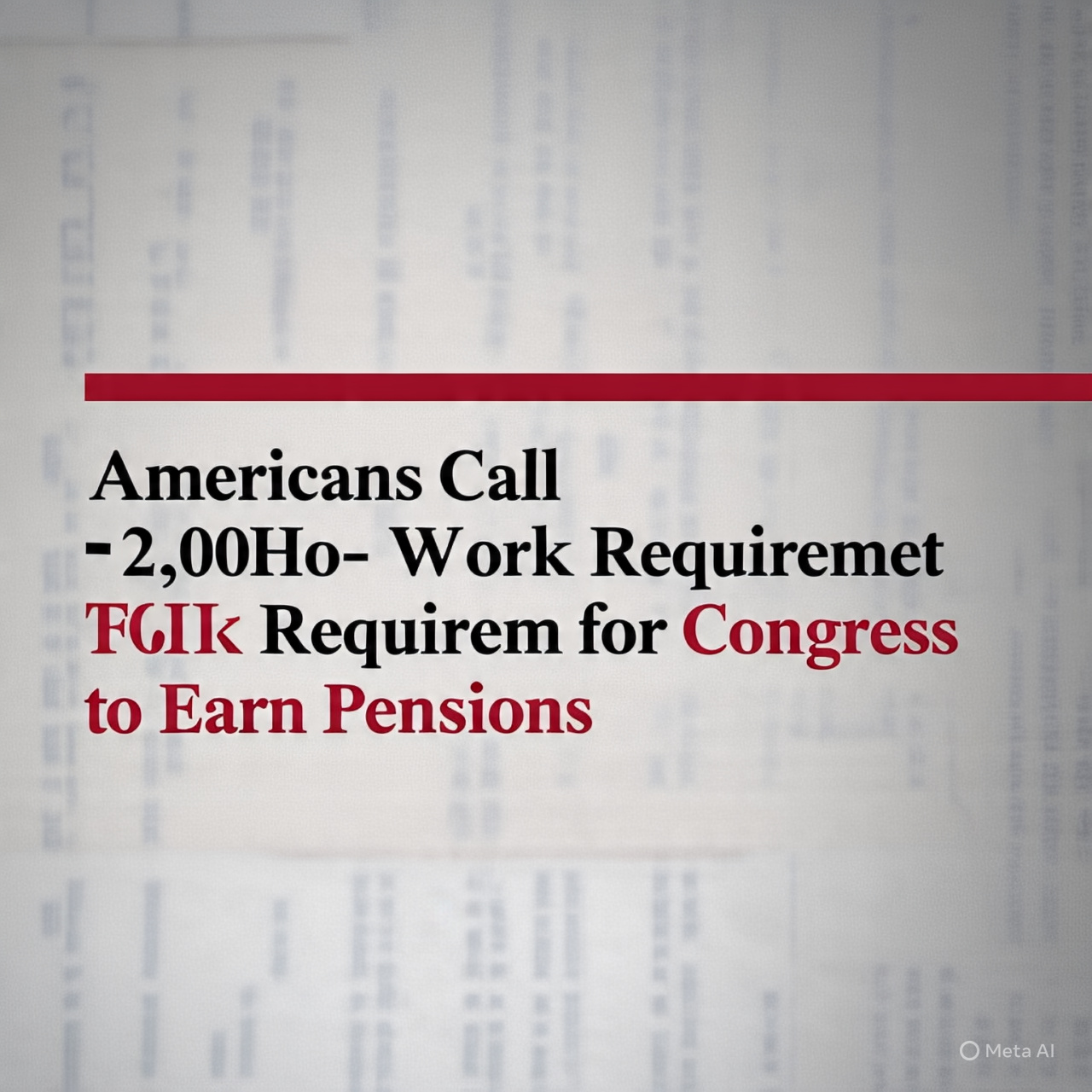Calls Grow for Congressional Work Reform: ‘Make Them Work 2,000 Hours Like the Rest of Us’
Washington, D.C. — May 14, 2025
Frustration with perceived privilege in Washington is once again boiling over as grassroots voices across social media call for a referendum to require U.S. Congress members and Senators to work at least 2,000 hours per year to qualify for pensions—a demand grounded in aligning federal lawmakers with everyday American work standards.
A viral post summed up the sentiment: “We need a referendum stating Congress and Senate need to work 2,000 hours a year to qualify for a pension. You know, like the rest of us.” The idea is resonating with working-class voters who feel lawmakers are increasingly out of touch with the economic realities of ordinary citizens.
Current Congressional Work Schedule Under Scrutiny
According to the Congressional Research Service, members of Congress typically work an average of 140 to 190 legislative days per year. While the workload includes constituent services, committee meetings, and travel, critics argue that the total hours rarely approach the 2,000-hour threshold—considered the annual full-time equivalent in the private sector.
Many Americans work 40 hours a week for 50 weeks a year (2,000 hours), often without pensions, generous healthcare, or the lifetime perks afforded to federal lawmakers.
“If Congress wants to legislate for the working class, they should live like the working class,” said Mark Mix, president of the National Right to Work Committee, in a recent interview with Fox News.
Pension System for Lawmakers Draws Backlash
Under the Federal Employees Retirement System (FERS), lawmakers are eligible for a pension after five years of service, though the amount depends on age and tenure. Critics argue this is far more generous than what is accessible to most Americans, particularly those without union support or employer-provided retirement plans.
According to the National Taxpayers Union Foundation, some long-serving lawmakers can receive pensions upwards of $40,000 to $70,000 annually, even if they retire in their 50s.
Push for Reform Echoes Populist Sentiment
The push for increased hours and reduced perks isn’t new. It echoes similar demands made during the Tea Party movement and resurged during the Trump era’s populist rise, where draining the so-called “swamp” became a core slogan.
“Americans are tired of two sets of rules — one for them, one for us,” said Rep. Nancy Mace (R-SC) during a House floor speech in 2024. “Congress should lead by example.”
Despite the anger, constitutional scholars note that imposing hour-based requirements through a national referendum would be legally complex, as Congress sets its own rules under Article I of the Constitution.
What’s Next?
While no formal legislation has been introduced to change pension eligibility based on work hours, the public pressure could shape campaign rhetoric heading into the 2026 midterms.
For now, the growing call for accountability is yet another sign of a frustrated electorate seeking fairness from those who claim to represent them.
Sources:
- Congressional Research Service – “Legislative Procedures and Workload”
- National Taxpayers Union Foundation – “Congressional Pensions: Understanding the System”
- Fox News – “Critics question Congress perks amid economic struggles”

